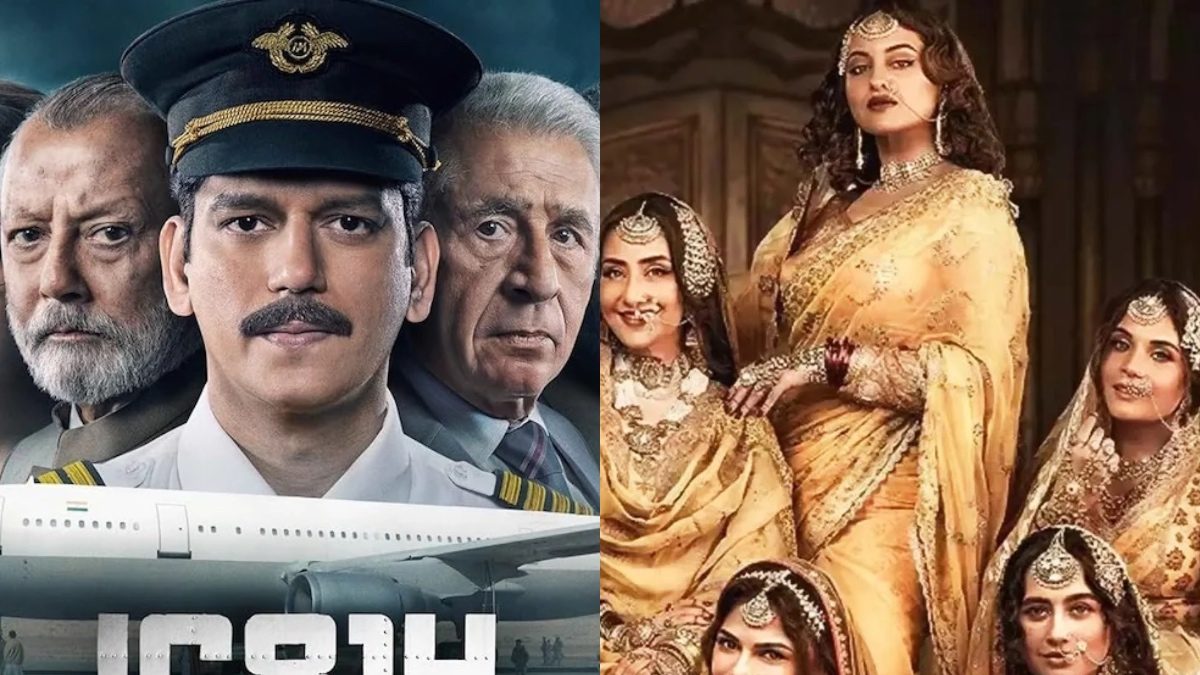In the contemporary era of streaming services, web series have become a prominent form of entertainment, often captivating audiences with their compelling narratives and diverse themes. However, this increased visibility has also exposed them to scrutiny and criticism, particularly when they draw inspiration from real events. Controversies surrounding web series are frequently ignited by sensitive portrayals of religion, historical inaccuracies, or perceived disrespect towards specific communities. This essay examines the controversies that have emerged from several prominent Indian web series, shedding light on the complex interplay between artistic expression, historical accuracy, and cultural sensitivity in the realm of digital storytelling.
Controversial Depiction of Religious and Historical Figures
The portrayal of sensitive religious figures and events is a common point of contention in web series, often triggering debates on the boundaries of artistic freedom and religious sentiments. IC 814: The Kandahar Hijack, a series directed by Anubhav Sinha for Netflix, ignited controversy by choosing Hindu names like “Bhola” and “Shankar” for the hijackers instead of their real identities. This decision was criticized for distorting historical facts and potentially altering public perception, particularly when dealing with sensitive national events. The use of fictionalized names sparked accusations of “whitewashing” the hijackers, raising questions about the ethical responsibility of creative storytelling in sensitive contexts.
Similarly, Tandav, directed by Ali Abbas Zafar and released on Amazon Prime, faced widespread outrage over a scene depicting actor Mohd Zeeshan Ayyub, dressed as Lord Shiva, delivering a monologue about “azaadi.” This portrayal was deemed disrespectful and offensive by many viewers, who accused the series of disrespecting Hindu deities and promoting religious disharmony. Despite an apology from the creators and the removal of the offending scenes, Tandav remained a flashpoint for discussions surrounding the portrayal of religious figures and the delicate balance between freedom of expression and cultural sensitivity in digital content.
Impact of Fictionalization on Historical Accuracy
Another major source of controversy arises from the inherent tension between creative freedom and the need for historical accuracy. While some series embrace a fictionalized approach, aiming to offer a compelling narrative, others strive for greater fidelity to historical events. Heeramandi, Sanjay Leela Bhansali’s highly anticipated OTT debut, encountered criticism for its portrayal of Lahore’s culture during the 1920s-1940s. While the show’s visuals and storytelling were praised, some critics argued that the series failed to accurately represent the historical and cultural context of Lahore, potentially presenting a distorted version of history. These criticisms highlight the ongoing debate about creative liberties versus historical fidelity in storytelling, particularly when dealing with sensitive and complex historical periods.
Concerns About Cultural Representation
Web series frequently encounter criticisms for their portrayal of specific communities and the potential for perpetuating negative stereotypes. Paatal Lok, produced by Anushka Sharma and available on Amazon Prime, drew criticism for its depiction of certain communities. The Delhi Sikh Gurdwara Management Committee expressed objections to a scene where a Sikh man is depicted committing rape, claiming it disrespects the Sikh faith and community. Additionally, the use of a sexist slur in the series offended the Nepali-speaking community, sparking complaints and calls for a ban on the series. The series faced accusations of unfairly targeting specific communities and propagating harmful stereotypes, raising concerns about the ethical responsibilities of creators in representing diverse communities sensitively and accurately.
Sacred Games 2, directed by Anurag Kashyap, encountered similar issues when a scene depicting Sartaj Singh, a Sikh character played by Saif Ali Khan, discarding his ‘kada’, a sacred bracelet worn by Sikhs, sparked controversy. This depiction was condemned as disrespectful to Sikh beliefs, leading to demands for its removal. This episode, like other examples, highlights the challenges faced by creators in navigating cultural sensitivities when depicting characters from different communities. While creative license is crucial, it’s equally important to avoid perpetuating stereotypes and offensive portrayals that may contribute to prejudice and discrimination.
The Power of Public Response
These controversies illustrate the growing impact of public response on web series. The accessibility and ubiquity of online platforms have empowered audiences to express their opinions and hold creators accountable. While creators have the right to artistic expression, their choices can also have unintended consequences, triggering backlash and even leading to calls for censorship. This highlights the growing need for greater sensitivity and responsibility from creators, particularly when dealing with sensitive themes that intersect with social, cultural, and religious identities.
Moving Forward with Dialogue and Respect
The controversies surrounding web series demonstrate the complex relationship between storytelling, artistic expression, and cultural sensitivity in the digital age. Navigating these issues effectively requires ongoing dialogue and a shared understanding of the nuances involved. Creators must prioritize ethical considerations and engage in a thoughtful approach that respects diverse communities and sensitivities while maintaining creative integrity. By engaging in critical self-reflection, embracing diversity, and actively seeking feedback from diverse perspectives, creators can strive to create content that is both entertaining and responsible.
Take Away Points
- Controversies surrounding web series highlight the ongoing tension between creative freedom and cultural sensitivity in digital storytelling.
- The portrayal of sensitive religious figures and events, historical inaccuracies, and depictions of specific communities often fuel debate.
- Public response, particularly online, has a significant influence on web series, with the potential to impact content and prompt creators to consider broader ethical implications.
- Open dialogue, engagement with diverse perspectives, and responsible content creation are crucial for navigating the complex landscape of digital storytelling.




